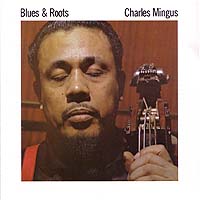With
others | - The Happy Blues (Gene Ammons, 1956)
- Jammin' with Gene (Gene Ammons, 1956)
- Funky (Gene Ammons, 1957)
- Jammin' in Hi Fi with Gene Ammons (Gene Ammons, 1957)
- Hard Bop (Art Blakey/The Jazz Messengers, 1956)
- Originally (Art Blakey/The Jazz Messengers, 1956 [1982])
- Drum Suite (Art Blakey/The Jazz Messengers, 1956–57)
- A Night in Tunisia (Art Blakey/The Jazz Messengers, Vik/RCA, 1957)
- Ritual: The Modern Jazz Messengers (Art Blakey, 1957)
- Tough! (Art Blakey/The Jazz Messengers, 1957)
- Back to the Tracks (Tina Brooks, 1960)
- 2 Guitars (Kenny Burrell & Jimmy Raney, 1957)
- Off to the Races (Donald Byrd, 1958)
- Fuego (Donald Byrd, 1959)
- Byrd in Flight (Donald Byrd, 1960)
- Cool Struttin' (Sonny Clark, 1958)
- Dig (Miles Davis, 1951)
- Quintet/Sextet (Miles Davis, 1955)
- Davis Cup (Walter Davis Jr., 1959)
- Inta Somethin' (Kenny Dorham, 1961)
- Matador (Kenny Dorham, 1962)
- Tuba Sounds (Ray Draper, 1957)
- 2 Trumpets (Art Farmer, 1957)
- Bird Songs: The Final Recordings (Dizzy Gillespie, 1992)
- To Bird with Love (Dizzy Gillespie, 1992)
- Pithecanthropus Erectus (Charles Mingus, 1956)
- Blues & Roots (Charles Mingus, 1958)
- Mobley's Message (Hank Mobley, Prestige, 1956)
- Hi Voltage (Hank Mobley, 1967)
- Evolution (Grachan Moncur III, 1963)
- Lee-Way (Lee Morgan, 1960)
- Tom Cat (Lee Morgan, 1964)
- Cornbread (Lee Morgan, 1965)
- Infinity (Lee Morgan, 1965)
- Charisma (Lee Morgan, 1966)
- The Sixth Sense (Lee Morgan, 1967–68)
- The Music From "The Connection" (Freddie Redd, 1960)
- Shades of Redd (Freddie Redd, 1960)
- Redd's Blues (Freddie Redd, 1961)
- Open House (Jimmy Smith, 1960)
- Plain Talk (Jimmy Smith, 1960)
- Taylor's Wailers (Art Taylor, 1957)
- Mal/2 (Mal Waldron, 1957)
- Left Alone (Mal Waldron, 1959)
- Left Alone '86 (Mal Waldron, 1986)
- Easterly Winds (Jack Wilson, 1967)
|
|---|
